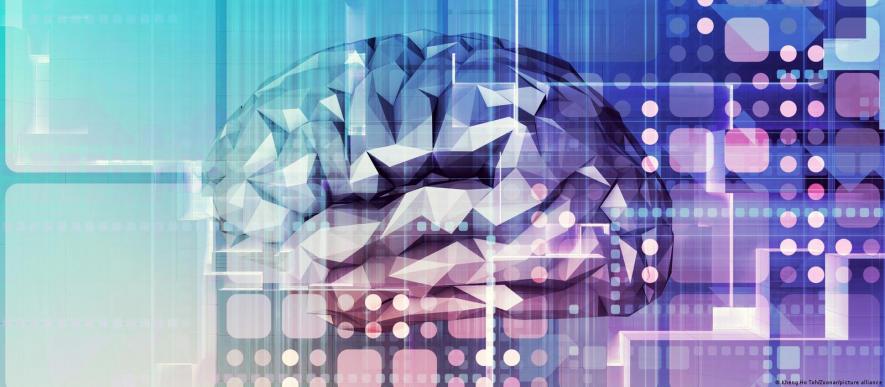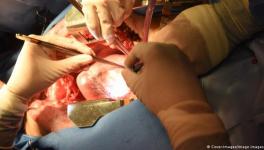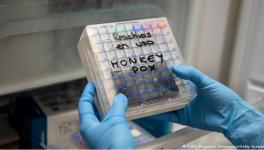Deja Vu: How Science Explains This Mysterious Phenomenon

Wait, have I met you before? Ah! Have I been here before? Also, sorry if you think you've read this before. It must be deja vu.
Have you ever moved to a new city, and somehow felt like it's familiar? Or met a person for the first time, but had the sense you’d met them before? Then you can count yourself among those who've experienced deja vu.
In 1876, Emile Boirac, a French philosopher and researcher, coined the term, which means "already seen."
But intellectuals have tried to explain the phenomenon as far back as Plato, who saw it as evidence of past lives. More recently, Sigmund Freud described this as a "recollection of unconscious fantasy coupled with a desire to improve the present situation." Carl Jung thought it was related to the collective unconscious, while modern Hollywood describes it as a ‘glitch in the matrix'.
"But there is nothing supernatural about it, and it is extremely normal to experience deja vu," said James J Giordano, professor of neurology at Georgetown University in Washington D.C.
"Deja vu is literally a person's subjective experience of repeating a particular set of events, activities, thoughts and feelings, even though that has never in reality occurred before," Giordano said.
Around 90 percent of the population has experienced deja vu and the frequency of it decreases as we age.
But do you know why exactly you get this spooky feeling sometimes?
A real mystery in science
"Our brain basically works like a time and space machine," Giordano told DW. "It takes everything in our present and relates it to something similar or dissimilar in our past. This way, it will be able to essentially plan the future. But there's a possibility that these signals could get mixed up."
Giordano suggests the phenomenon could have to do with an area in the middle of the brain called the thalamus. All information such as hearing, taste, touch etc. must pass through the thalamus to the brain's cerebral cortex (the outermost layer) for further interpretation and processing.
"And if the speed of those interactions is a bit different, it then feels to us as if we're experiencing the present, as though we remember it. So what our brain has done is literally confused the present with the past," Giordano explained.
Roderick Spears, associate professor of migraine research and clinical sciences at Brown University in Providence, Rhode Island, agrees that there is no solid explanation of why and how deja vu happens.
It’s also difficult for researchers to reach a conclusion, as deja vu is a difficult phenomenon to reproduce in a laboratory setting.
A window to a parallel universe?
"It is difficult to study because it happens spontaneously. We don't know how to trigger the episodes in a lab," said Spears.
Over the decades, scientists have come up with various theories about why and how it happens.
![]()

Around 90 percent of the population has experienced deja vu at some pointImage: Terry Papoulias/Zoonar/picture alliance
One popular theory from a neurological perspective is dual processing – in which information is stored and retrieved through different processes in the brain.
For example, you are sitting in your living room reading this article. The smell of your mom's cooking is in the air, your pet is cuddled up on the sofa, you hear the notification sound on your mobile, and feel the sunlight touching your skin. All these sensations add up during processing and are interpreted as a single event.
According to the dual processing theory, when there is a slight delay in the brain while processing one of these inputs, it interprets the experience as two separate events, giving you the feeling of familiarity.
There are also studies linking deja vu with a parallel universe. Theoretical physicist Dr. Michio Kaku believes that deja vu is a form of memory glitch that happens when "fragments of memories stored in the brain… are elicited by moving into an environment that resembles something we’ve already experienced."
But he also theorizes about the possibility of flipping between different universes – and whether deja vu could be trying to tell us something about our position in those universes.
Deja vu as a symptom of stress
There are also studies suggesting that stress could be a factor in deja vu.
"The brain works better when it is rested and energized. When you are under excessive stress, or worrying a lot, the brain gets tired. So what can happen is the pattern of our brain activity changes a bit. Given those changes, it is not uncommon to experience deja vu," explained Giordano.
Spears added that highly educated people tend to get deja vu more often than less educated people. "People who travel a lot, who remember their dreams and people who hold liberal beliefs can more often experience it," he said.
Is it a sign of an unhealthy brain?
"Not at all," said Giordano. Deja vu happens to healthy people all the time, and is most common between the ages of 15 and 25.
But Spears advises anyone experiencing it more than a few times a year – for example multiple times a month – to seek medical attention.
He further notes that if deja vu is associated with loss of consciousness, or an abnormal dream-like state, then it could be a symptom of something serious.
"Things to look out for include, experiencing deja vu for more than a few seconds, or having a difficult time distinguishing between what's real and what's not. Or you might notice someone developing unconscious behaviors like playing with their hair or not being able to hold objects in their hand. Also, an increased heart rate or an overwhelming sense of fear should prompt medical evaluation," Spears said.
That’s because in rare cases, deja vu is a sign of a seizure, specifically an epileptic seizure.
"The temporal lobe is where most seizures come from. It happens when the lobe is over activated and the person is semi conscious, but not completely out. This can produce feelings of deja vu," Spears said.
But while there’s widespread agreement on what deja vu feels like, and various theories as to what causes it, scientists still don’t have a definitive answer when it comes to this eerie sensation.
"We just don't have a solid structural explanation yet," said Spears.
Get the latest reports & analysis with people's perspective on Protests, movements & deep analytical videos, discussions of the current affairs in your Telegram app. Subscribe to NewsClick's Telegram channel & get Real-Time updates on stories, as they get published on our website.
























